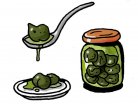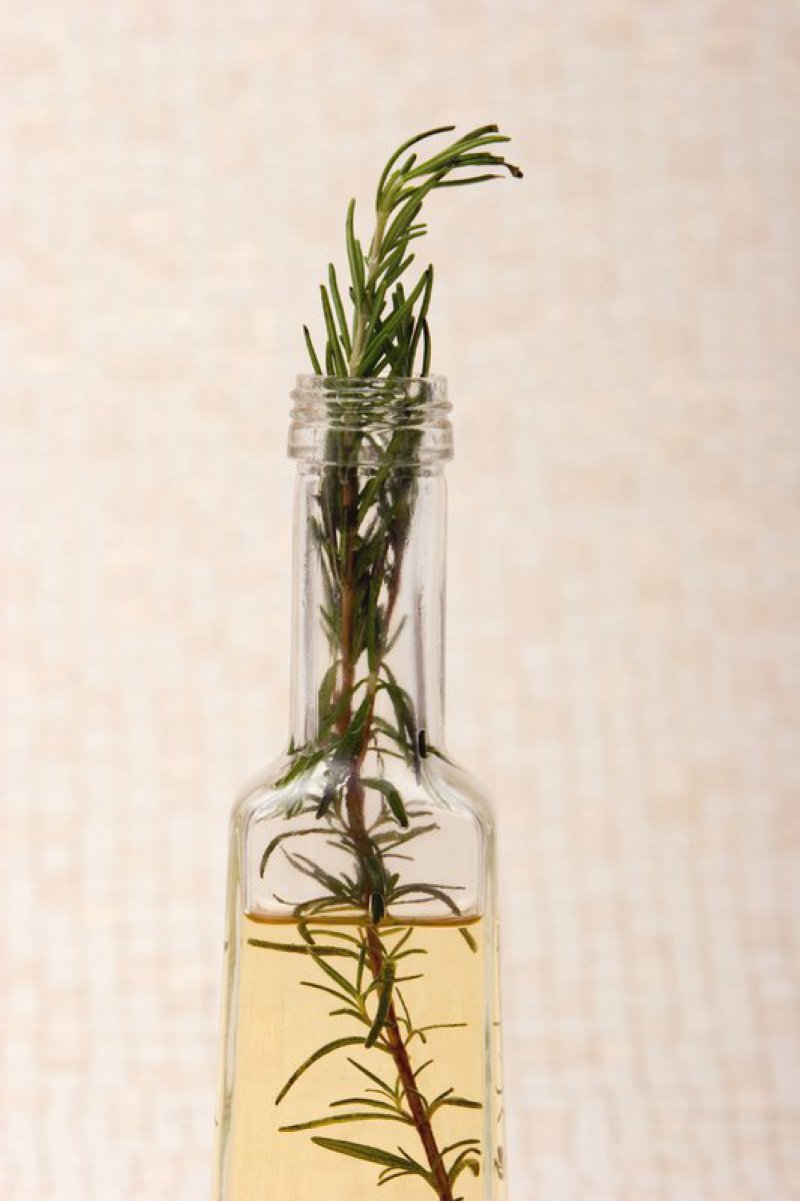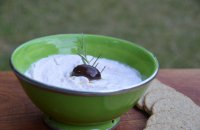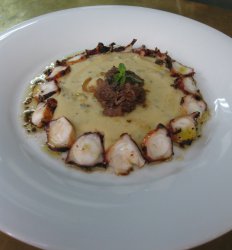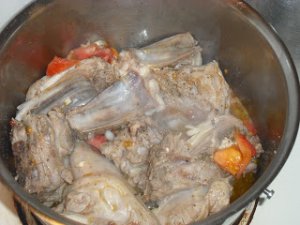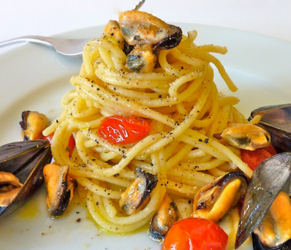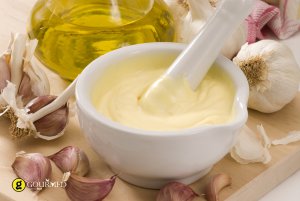And hardly ever taste olive oil sipping it from a tiny tumbler, as professionals and some newly initiated gourmands do…
Having grown up eating olive oil, it is particularly difficult for Greeks to come up with definitions like “grassy”, “greasy” or “buttery” etc. for a particular oil. Observing, or worse, taking part in a formal olive oil tasting during the various Mediterranean Food conferences all over the world, feels strange to me. Now, after many years, I still object to oil been sipped from a tumbler, as if it was a drink.
To me, olive oil is the most important ingredient of our food, and unless one is a professional taster, oil should be eaten, not drank, with some kind of food, for example bread, as Greeks used to do before the golden liquid became a precious gourmet item.
Roughly two out of three Greek families either come from oil producing regions, or have a friend or relation who does. All these people get their year's supply of virgin olive oil directly from the presses. Before buying, Greeks taste the olive oil not by sipping it, but dipping a piece of white bread in it; or they judge its flavor as it complements a vegetable salad especially as it is drizzled over sweet, tender shredded cabbage, the main salad that accompanies late fall and winter meals.
We usually prefer the oils we grew up eating. For example the people of Lesbos like the very mellow, sweet oil they extract from ripe fruit, while people from Crete, in general, prefer strongly flavored oils, even tolerate the ones with high levels of acidity. I remember a friend from Messara, in central Crete, told me once that my potatoes, fried in refined oil, had no flavor, and tasted ‘as if cooked in water’. Note that in Greece all fried foods –fish, vegetables as well as sweet pastries— are fried in olive oil, and many traditional sweets and cookies, baklava included, come in two versions: One with butter and one with olive oil, for the numerous Lenten days, when foods deriving from animals are excluded.
The year’s new tasty ‘ kalo ladi’ (good olive oil) –what European and Americas would call ‘extra virgin’— is particularly enjoyed on Clean Monday, the first day of Lent (late February or early March). Olive oil flavors the traditional bean salad, the wild greens’ pie, and it is an important ingredient to the tarama spread. In the summer the most flavorful oils are used to dress the tomato salad which is often made into a full meal with the addition of crumbled paximadia (barley savory biscotti), olives, capers, feta cheese, sprinkled with a good pinch of fragrant dried oregano.
How Greeks View Olive Oil
We, Greeks, usually prefer the regional olive oil we grew up eating!
Country:
Category:
Related Articles
Most Popular recipes












































